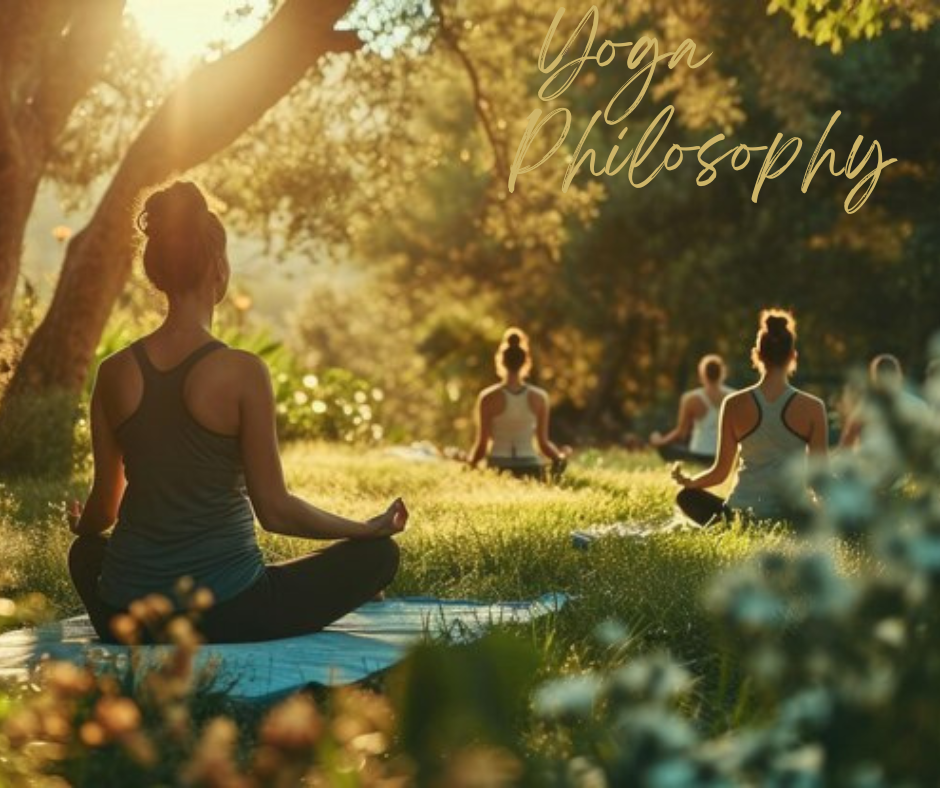Yoga is a practice that has been around for centuries, originating in ancient India. It is a holistic approach to health and well-being, encompassing physical postures, breathing exercises, and meditation. While many people are familiar with the physical aspect of yoga, the philosophy behind the practice is equally important and can greatly enhance the overall experience. In this article, we will explore the connection between the yoga mat and yoga philosophy, and how understanding this connection can deepen your practice and enrich your life.

The Yoga Mat as a Symbol of Connection
When you unroll your yoga mat, you are creating a sacred space for your practice. The mat becomes a physical representation of the connection between your body, mind, and spirit. It is a place where you can let go of the outside world and turn your focus inward. The act of stepping onto the mat signals a shift in consciousness, a transition from the busyness of daily life to a state of mindfulness and presence.
In yoga philosophy, the mat serves as a reminder of the interconnectedness of all things. Just as the individual threads of the mat are woven together to create a unified whole, so too are we all interconnected with each other and with the universe. This understanding can bring a sense of unity and harmony to your practice, allowing you to approach each posture with a deeper awareness of your connection to the world around you.
The Philosophy of Yoga: Union and Balance
At the heart of yoga philosophy is the concept of union, or "yoga" in Sanskrit. This union refers to the integration of body, mind, and spirit, as well as the connection between the individual and the universal. Through the practice of yoga, we seek to harmonize these elements, creating a sense of balance and wholeness within ourselves.
On the physical level, the yoga mat provides a stable foundation for the practice of asanas, or yoga postures. It offers support and cushioning, allowing you to move through the poses with greater ease and comfort. This physical support mirrors the deeper intention of yoga philosophy, which is to cultivate a sense of inner stability and balance that can be carried off the mat and into everyday life.

The Breath and the Mind: Cultivating Awareness
In yoga philosophy, the breath is considered a bridge between the body and the mind. Through the practice of pranayama, or breath control, we can learn to regulate our breath and bring greater awareness to the present moment. When you step onto your yoga mat, you have the opportunity to cultivate a deeper connection to your breath, using it as a tool to anchor your awareness and quiet the fluctuations of the mind.
As you move through your practice, pay attention to the quality of your breath. Notice how it changes with each movement and how it can be used to guide you deeper into the postures. By focusing on the breath, you can cultivate a sense of mindfulness that extends beyond the physical practice, helping you to stay present and centered in all aspects of your life.
The Yamas and Niyamas: Ethical Guidelines for Living
Yoga philosophy also encompasses a set of ethical guidelines known as the yamas and niyamas. These principles offer a framework for living a life of integrity, compassion, and self-discipline. When you bring these principles onto your yoga mat, you have the opportunity to embody them in a tangible way, allowing them to infuse your practice with deeper meaning and purpose.
The yamas include principles such as ahimsa (non-violence), satya (truthfulness), and aparigraha (non-attachment), while the niyamas encompass concepts like saucha (purity), santosha (contentment), and tapas (self-discipline). By reflecting on these principles as you move through your practice, you can cultivate a greater sense of self-awareness and align your actions with your values, both on and off the mat.
The Practice of Meditation: Cultivating Inner Stillness
Meditation is an integral part of yoga philosophy, offering a pathway to inner stillness and self-discovery. When you take a seat on your yoga mat and turn your attention inward, you are engaging in the practice of dhyana, or meditation. This practice allows you to quiet the mind, cultivate a sense of inner peace, and connect with your true nature beyond the fluctuations of thought and emotion.
By incorporating meditation into your yoga practice, you can deepen your understanding of yoga philosophy and experience its transformative power firsthand. Through regular meditation, you can develop greater clarity of mind, emotional resilience, and a deeper connection to the present moment. This inner stillness can then permeate every aspect of your life, allowing you to approach challenges with greater equanimity and grace.
The Journey of Self-Discovery: Finding Meaning on the Mat
Ultimately, the yoga mat serves as a canvas for self-discovery and personal growth. As you engage with the philosophy of yoga and bring it onto your mat, you have the opportunity to explore the depths of your being and uncover the wisdom that lies within. Each time you step onto your mat, you embark on a journey of self-exploration, using the physical practice as a gateway to understanding the interconnectedness of all things and the true nature of your own being.
By embracing the philosophy of yoga and integrating it into your practice, you can transform your time on the mat into a profound and meaningful experience. The yoga mat becomes a place of reflection, self-inquiry, and spiritual awakening, allowing you to tap into the timeless wisdom of this ancient practice and carry its teachings with you as you navigate the complexities of modern life.
In conclusion, the yoga mat is not just a physical tool for practicing yoga; it is a symbol of the profound connection between the body, mind, and spirit. By understanding and embracing the philosophy of yoga, you can elevate your practice from a mere physical exercise to a transformative journey of self-discovery and spiritual growth. As you step onto your mat, remember that you are not just engaging in a series of postures; you are entering into a sacred space where the wisdom of yoga can unfold, guiding you toward a deeper understanding of yourself and the world around you.

